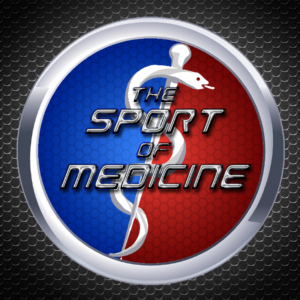Nearing the completion of core clerkships, I’ve been able to reflect on the past year, which was filled with some of the most challenging and profound experiences since I began medical school. As I mulled them over, I noticed a common denominator among those memories that stood out most. During these moments, I had sensed more deeply than ever before that my learning needed to be about more than the provision of biomedical care. They were the experiences that had reminded me that people are parents, sons and daughters before they are patients in the hospital. They had taught me that “routine” labs are never routine for patients who carry measures of anxiety and hope into each morning encounter.
During these moments of discovery, I was never alone — I was always alongside my attending physician. Whether it was while diagnosing a new heart murmur or communicating imaging results that would change the patient’s hospital course, I was empowered and guided through each of these steps. Following these encounters, I was further given the chance to self-assess and receive constructive feedback. In the process, the attending would reiterate the necessity of palpating pulses while auscultating heart sounds or comment on how to best objectively verbalize malignant test results. I was given the protected autonomy to practice medicine, receive feedback and then try again.
Looking back, I realize I was essentially coached through these crucial moments of clerkships. I was coached to think about patient care as being about more than correct diagnoses and management. I was coached to strive alongside patients for the joys and grief that wait beyond their new diagnosis. For that, I am deeply indebted to the cohort of attendings who encouraged me through each step along the way.
As an avid fan of sports, I am no stranger to the critical role of coaching. Competitive athletes are coached at every level and the generational players are often mentioned in parallel with the greatest coaches. Michael Jordan had established himself as one of the best basketball players early in his career, but it was not until Phil Jackson’s arrival as coach that he won numerous championships. During his two-decade career, Kobe Bryant won several championships — but only with Phil Jackson as his coach. Tom Brady similarly has had Bill Belichick on the sideline for the entirety of his football career. Michael Phelps began his training in the pool with Bob Bowman from age eleven to his retirement. In sports, the best athletes are coached throughout their careers.
Atul Gawande, the renowned surgeon, writer and public health researcher, spoke on the influence that coaching has had in his career:
I’d entered practice in 2003, and for the first several years, it was just this steady, upward improvement in my learning curve. I watched my complication rates drop from one year to the next. And after about five years, they leveled out. I realized I wasn’t getting any better anymore. So I said … “OK, I’ll try a coach.” I asked a former professor to come to my operating room and observe me.
The case — I remember that first case. It went beautifully. I didn’t think there would be anything much he’d have to say when we were done. Instead, he had a whole page dense with notes. “Did you notice that the light had swung out of the wound during the case? You spent about half an hour just operating off the light from reflected surfaces. Your elbow goes up in the air every once in a while. That means you’re not in full control; if you feel your elbow going in the air, you should get a different instrument, or just move your feet.”
After two months of coaching, I felt myself getting better again. And after a year, I saw my complications drop down even further. It was painful. I also felt there were periods where I would get worse before I got better. But it made me realize that the coaches were onto something profoundly important.
Coaching innately provides another dimension of awareness. Great coaches become external eyes and ears that provide an accurate assessment for one to improve and excel at their craft. As Gawande’s experience reveals, efforts to seek coaching are not only important in sports, but also in medicine. Similar to the role that coaching has in athletics, I believe coaching is crucial throughout medical school, residency and beyond as senior physicians.
There are numerous aspects of medicine that can be coached: procedural or surgical techniques, subtleties of physical exams and breaking difficult news, to name a few. But I am convinced that coaching in medicine can encompass avenues beyond the day-to-day delivery of patient care; coaching is also instrumental to improve as administrative leaders, writers for peer-reviewed journals and public speakers at conferences.
In sports, athletes seek coaches to progressively improve and ultimately perform at their full potential. In medicine, trainees should seek coaching for continued development of their craft in various roles. Although trainees may not always like being observed or critiqued, ultimately, in the journey to uphold the highest values of the Oath we profess, I believe coaching is profoundly important in medicine.
Aside from the obvious anatomical and physiological implications that dictate sports, I am convinced that there are numerous principles that run parallel between medicine and sports. The aim of The Sport of Medicine is two-fold: to show that there is power in understanding the journey of others to help mold our own, and why I believe that medicine is a sport in its own, unique way.

